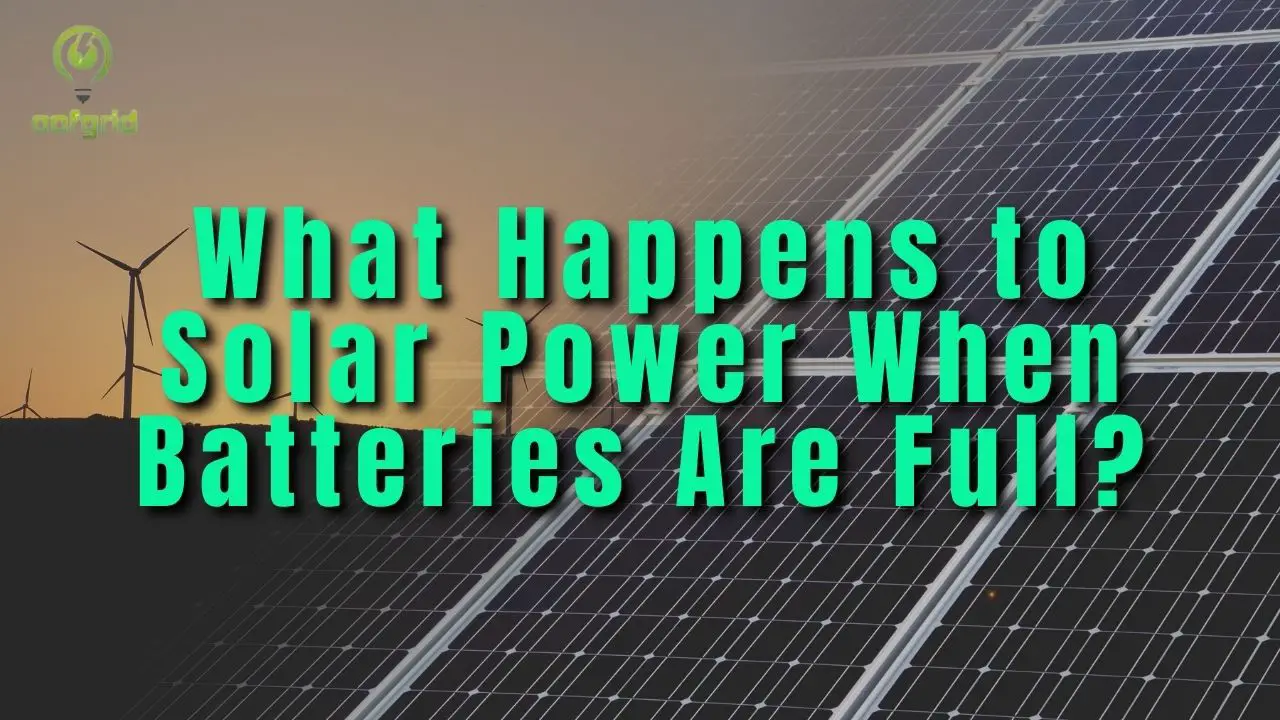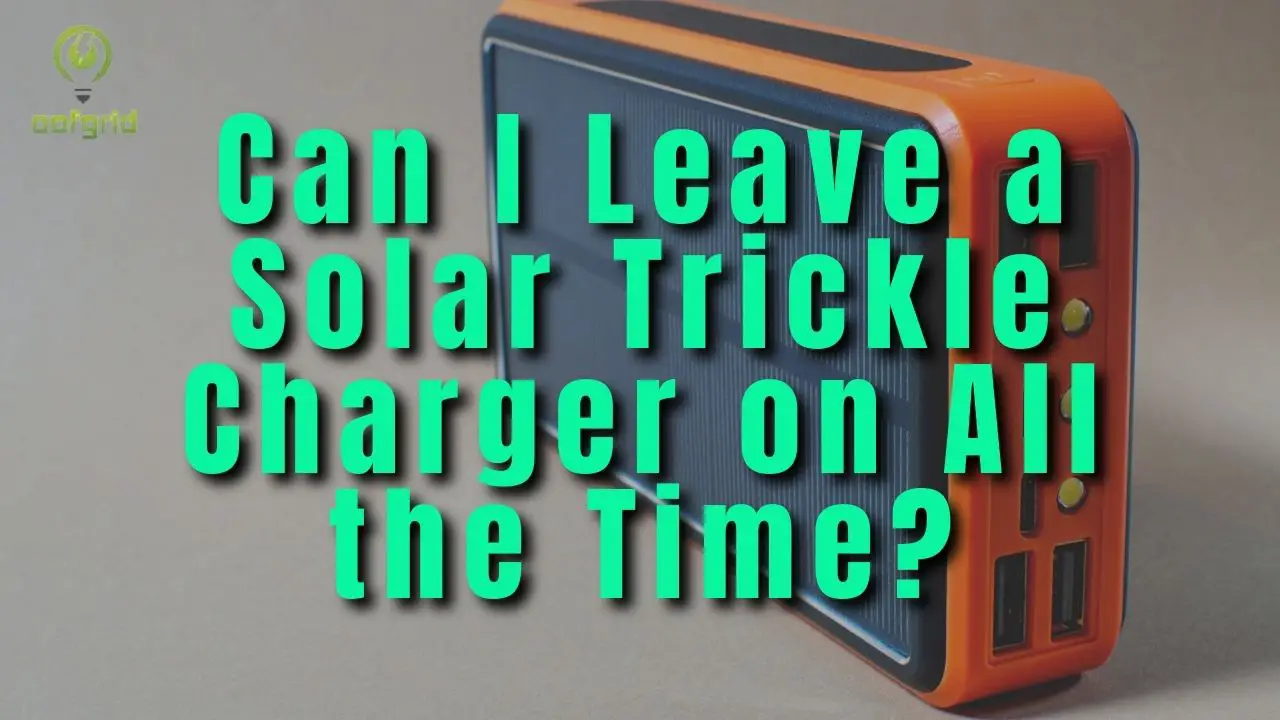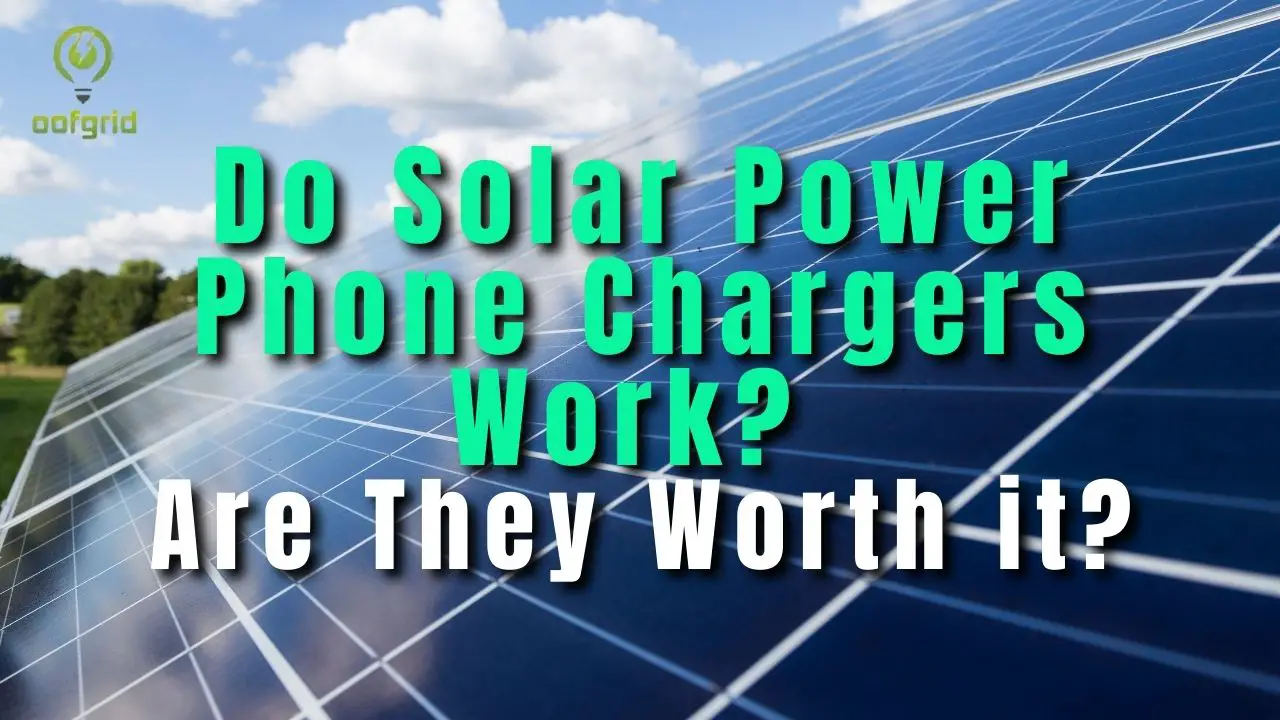Solar charging is a great way to keep electricity to your devices when you are away from a power grid. Once you make the switch you will be relying on your batteries to stay charged. How can you protect batteries while solar charging?
When charging batteries with a solar panel you will need a charge controller to keep the batteries from overcharging. Be sure that your device has an automatic shut-off or built-in charge controller. The biggest concern is heat, if you notice your batteries getting hot, disconnect them immediately.
Heat is the biggest enemy of batteries. As soon as batteries start heating up, they break down. Heat shortens the life of all batteries. That includes the battery in your phone and the battery in your car.
To protect your batteries, be sure to match your charger to your device. There are USB power meters you can buy to measure the power produced by your solar charger.

Contents
Can you Overcharge a Battery With Solar Chargers?
Solar panels do not automatically turn off the power to the batteries on their own. If you allow the solar panels to feed the batteries beyond their capacity they will overcharge, overheat and potentially explode.
There are a lot of stories of batteries exploding, but why does that happen?
When a battery is overcharged, that extra energy becomes heat. Heat always breaks down batteries. If batteries are allowed to overcharge and overheat too much then they explode. It is a chemical fire, and very very dangerous.
Inside some kinds of batteries, like Lithium Batteries, there are cells connected together, if that first cell overcharges and overheats, the extra charge is passed to the next cell, destroying it.
How to Tell When a Solar Battery is Fully Charged?
When you are setting up your solar system, you will install a small piece of equipment called a Battery Monitor. This little ‘brain’ of your system will show a small display that lets you know what power is being produced and what the charge level is of your batteries.
You can also buy an inexpensive small device, designed to test car batteries if you have lead-acid batteries. This device will tell you quite a bit about your lead acid battery life.
This is the best setup for an off-grid system, but if you are at home with a grid-tied system, that extra power you are producing during the day is money in your pockets.
When using a grid-tied system, power is not usually stored in batteries in your home, your power comes from the sun during the day and then you pull from the grid at night. Excess power generated during the day goes to the grid and that gives your credit for the power you use at night.
These grid-tied systems are designed to balance so that you are only using the amount of power that you produce, so you do not end up owing money for the power you pull from the grid.
How to Prevent Solar Chargers Damaging Your Batteries
Lithium-Ion batteries are awesome because they charge and discharge more quickly, and they can handle a lot of charge and discharge cycles.
There are always new developments in battery creation and each technology is working towards longer-lasting quick-charging batteries. They are designed to be used and used frequently.
Be sure to use devices that are designed to be connected and keep your batteries out of the sun and you are unlikely to have trouble with overcharging.
How Long Should I Charge A Battery Directly With a Solar Panel
Energy can be thought of like water, it flows through wires like water through pipes. A bucket can only hold so much water and your batteries can only hold so much power.
When charging batteries directly with a solar panel, monitor the charge on your battery closely. You can measure the charge on your battery with a battery tester. These are simple devices that connect to your battery and tell you the level of charge.
They also give you advice about your battery’s health.
Using a Trickle Charger
Trickly chargers are small solar panels that connect directly to a battery to keep it from dying.
Batteries are designed to be used, to be charged, and discharged. If you have something like a 4 wheeler, golf cart, or even a car that is rarely used, a trickle charger attached to the battery helps ensure it will crank right up when you are ready to use it.
These chargers come in many sizes and various price points.
When choosing a trickle charger be sure it has an automatic shut-off, so it does not kill the battery by overcharging.
Can I Leave a Trickle Charger on 24/7
Trickle chargers are designed to be left on batteries for a long time to keep them from dying.
A high-quality trickle charger should have an automatic shut-off. If there is no power leaving the battery, then it will likely fill up over time and no longer need to be charged.
Be sure that when you are shopping for a trickle charger that it comes with an automatic shut-off, because overcharging will shorten the life of your batteries.
How to Properly Set up and Use a Solar Charge Controller
The most common way to protect batteries from over-changing is to set up a system that uses a charge controller.
A charge controller should be set up between the solar panels and the batteries. Charge controllers usually have a solar positive input terminal, solar negative input terminal, and a battery positive output terminal and battery negative output terminal. So, connecting the solar panels and the solar batteries to a charge controller is quite straightforward. When installing a charge controller, turn off solar panels and batteries before starting, and be sure to appropriately ground the device as well.
A charge controller may be connected directly to the solar panels and batteries, or may be connected to a device like a bus bar and an emergency switch off. All of these are good practices.
When you are designing your solar setup, you may want to plan a wiring diagram so you have a clear, safe plan for your off-grid power setup.
Should all Solar Panels Use a Charge Controller to Prevent Battery Damage?
A charge controller protects that battery, charging without a charge controller will damage your batteries quickly. If you must charge without a charge controller, the batteries must be monitored the entire time. They should be charged to 80%, no higher and if they get hot they should be disconnected immediately.
The reason battery damage is so serious is because it can result in a battery explosion. If the batteries overheat they can become unstable on a chemical level and explode.
PWM vs MPPT Charge Controller | Which one Should I Get?
Charge controllers regulate the amount of power passed from the solar panels to the batteries. The energy coming from the panels varies wildly throughout the day. The charge controller keeps the amps between 12ish and 14ish to most efficiently charge the batteries.
There are two main kinds, PWM or Pulse Width Modulation and MPPT or Maximum Power Point Tracking. The PWM was the first type of charge controller developed, so it is an older technology.
PWM requires a very narrow set of parameters to function, it is not as ‘smart’ as an MMPT controller. So a PWM charge controller would not be ideal for many modern solar set-ups.
An MMPT controller is like the phase 2 development of solar chargers and it is a much better choice for most solar set-ups.
Conclusion | Can Solar Chargers OverCharge and Damage a Battery?
Solar panels just collect energy from the sun. They have no integrated ability to control how much power they pass to the batteries.
If too much power goes from the solar panels to the batteries the extra power turns into heat. Heat is the number one enemy of batteries.
Solar batteries are a big part of the expense required by an off-grid solar setup, and a charge controller is very inexpensive.
Protecting your batteries with a charge controller just makes sense.





